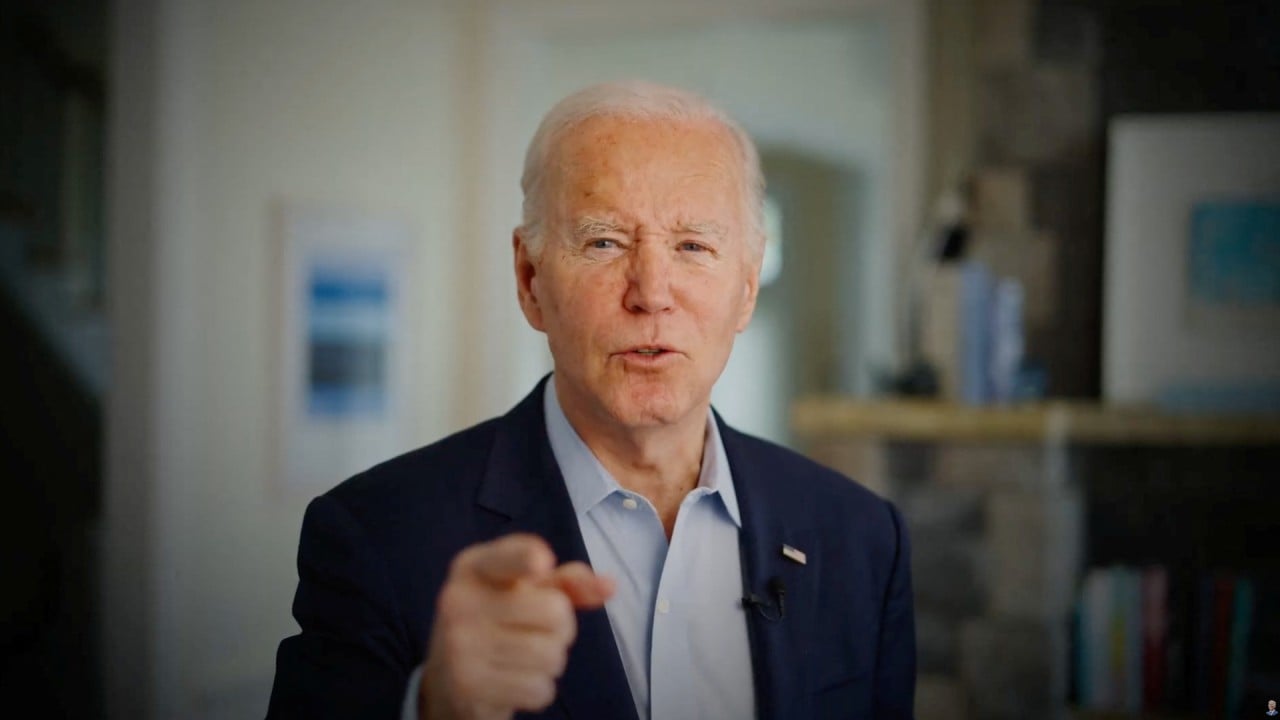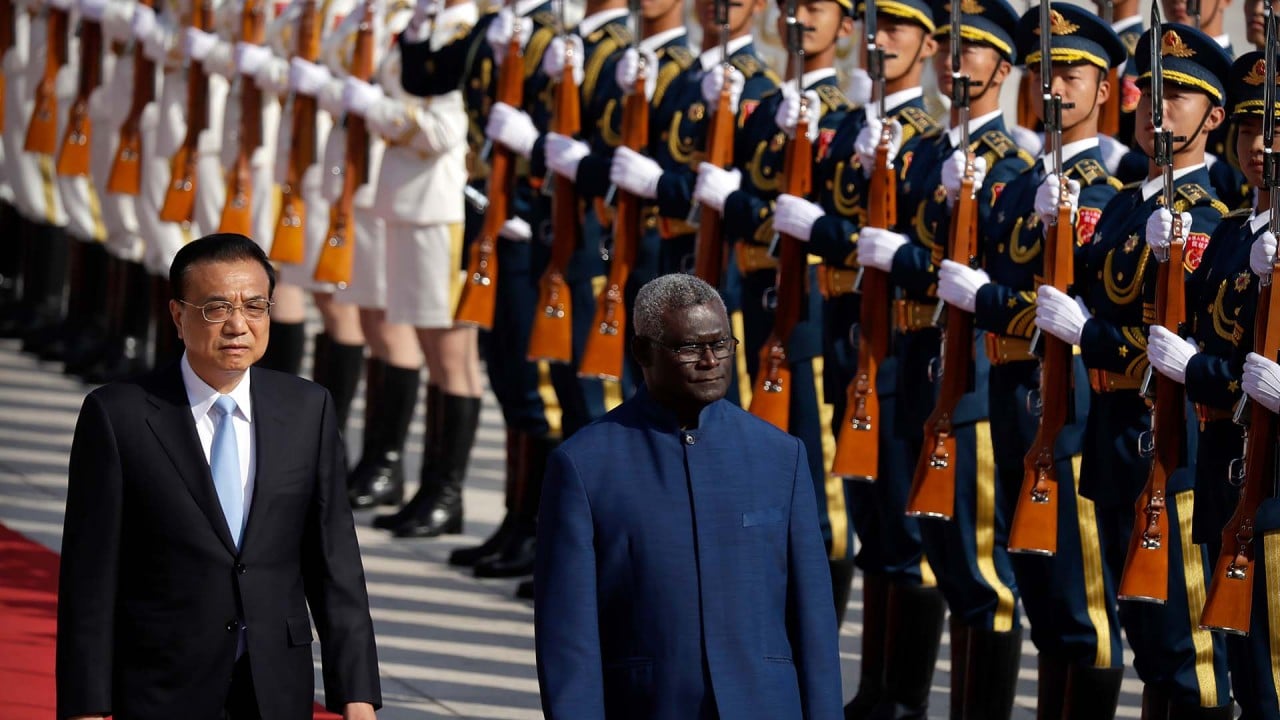
As US Congress debates budget, Pacific island nations are watching with concern
- US President Joe Biden has pledged generous funding for tuna treaty and other regional initiatives in a bid to offset China’s growing influence
- But Republicans are looking to make cuts in foreign aid and the Pacific Partnership might be a victim, experts say
Six months after US President Joe Biden hosted over a dozen Pacific leaders and envoys at the White House and pledged generous funding, experts say the region is carefully watching for the follow-through as Congress haggles over slashing foreign aid.
Announced in September, the Pacific Partnership Strategy – intended to help the US catch up with China’s growing influence in the region – committed to spending more than US$800 million on priorities like climate change, fishing disputes and maritime security.
A majority of the funding was US$600 million in ramped-up aid for renewing the South Pacific Tuna Treaty, nearly tripling the US contribution to US$60 million annually for the next 10 years.
Originally signed in 1988 between the US and 16 Pacific Island nations and territories, the treaty promotes the economic development of fisheries and outlines the rules under which US vessels can enter and fish in the exclusive economic zones of the Pacific islands.

The treaty thus provides Washington broader rights of maritime surveillance, while acting as an economic lifeline for some Pacific signatories that earn about 40 per cent of their national income from tuna fishing licenses and access fees.
Along with the US and Australia, parties to the treaty include the Cook Islands, the Federated States of Micronesia, Fiji, Kiribati, the Marshall Islands, Nauru, New Zealand, Niue, Palau, Papua New Guinea, Samoa, the Solomon Islands, Tonga, Tuvalu and Vanuatu.
While regional experts have voiced their concern about the political bickering over federal spending, relevant Pacific organizations have been reticent.
The Pacific Island Forum Fisheries Agency, an inter-governmental body that led the negotiations on the tuna treaty, declined to discuss the legislative hurdles the pledged funding confronts.
The Pacific Islands Forum, an 18-member inter-government group that facilitates cooperation among the countries and territories of Oceania, did not immediately provide a comment.
Fulfilling the pledge is under scrutiny because of recent US history concerning the treaty. In 2016, Washington reneged on a promise to pay US$89 million a year in economic assistance for fishing rights. After the Barack Obama administration threatened to withdraw entirely, the islands were compelled to stick with the earlier payments of US$21 million.
But at the Pacific Island Forum in Fiji last July, US Vice-President Kamala Harris described the tuna treaty as the “cornerstone” of the US-Pacific partnership, nearly tripling the US contribution to US$60 million annually for the next 10 years.
“At a time when we see bad actors seeking to undermine the rules-based order, we must stand united,” Harris declared, a tacit reference to China. Washington regularly accuses China of illegal fishing in the Pacific.

A Chinese security deal with the Solomons last year galvanised Washington into action due to concerns about Beijing establishing a military base there.
Decades of US neglect have allowed China to make steady gains in the Pacific. According to Australia-based Lowy Institute, from 2006 to 2017, China provided about US$1.5 billion in foreign aid to the Pacific Islands region through a mix of grants and loans.
The Pacific Partnership Strategy is Biden’s attempt to address that, but the funds are yet to materialise, awaiting congressional approval.
Jessica Collins, a research fellow at Lowy, attributed the delay to the Republicans’ retaking control of the House of Representatives in the November midterms.
“The Republicans may continue to kick the can down the road to keep President Biden’s agenda at a standstill, which could impact funding for the tuna treaty,” she said, adding that there was still “room for hope”.
The US has fulfilled some other promises, like the reopening of a US embassy in the Solomons, she noted. And discussions to open embassies in Kiribati and Tonga have been under way since July.
Some House Republicans have called for slashing the country’s foreign aid budget, but both Democrats and Republicans have shown willingness to work together to counter China’s campaign for global influence.
Although Congress largely agrees on the need to compete with China, Brian Harding of the United States Institute of Peace noted, “there’s not necessarily bipartisan consensus on how to compete”.
He said that both parties understand that working with Pacific Island nations on their priorities is “good for overall strategic competition” but that Democrats were more inclined to engage heavily on climate related issues.
The debate over cutting federal spending had nothing to do with sentiment toward the region, Harding added, “but the problem is that everything is potential collateral damage”.
A group of Republican representatives this month introduced a bill named “Defund China’s Allies Act” seeking to “prohibit the availability of foreign assistance to certain countries that do not recognise the sovereignty of Taiwan”.
Among the 21 countries listed on the proposed legislation are Kiribati and the Solomons. Both nations severed diplomatic ties with Taiwan and switched recognition to the People’s Republic of China in September 2019.
Kenneth Kuper of the Pacific Centre for Island Security, a research institute based in Guam, said that Pacific Island nations do not want to get caught in the middle of two powers clashing for regional supremacy.
Kuper said that the region would “need to manage expectations” as it watched the budget process unfold.
The pledges of assistance are not limited to the Pacific Partnership Strategy: Biden’s budget also proposes more than US$7 billion over 20 years to extend the Compact of Free Association deals with Micronesia, the Marshall Islands and Palau, the largest budget item ever for the region.
Those pacts, set to expire this year, grant the US military basing rights in exchange for economic support and security.
Kuper called the COFA commitment “a litmus test for US credibility” in the region. He said that the three island nations had a close relationship with the US and that if the COFA funding is not secured, “the rest of the Pacific will start to wonder whether or not this Pacific Partnership Strategy, and whether or not the summit that happened, was just a temporary phase”.
Collins of the Lowy Institute added that failing to deliver could damage “Washington’s authority in the region”.
“It’s safe to say that some Pacific leaders would already be sceptical about the sincerity of Washington’s promises,” she noted.



